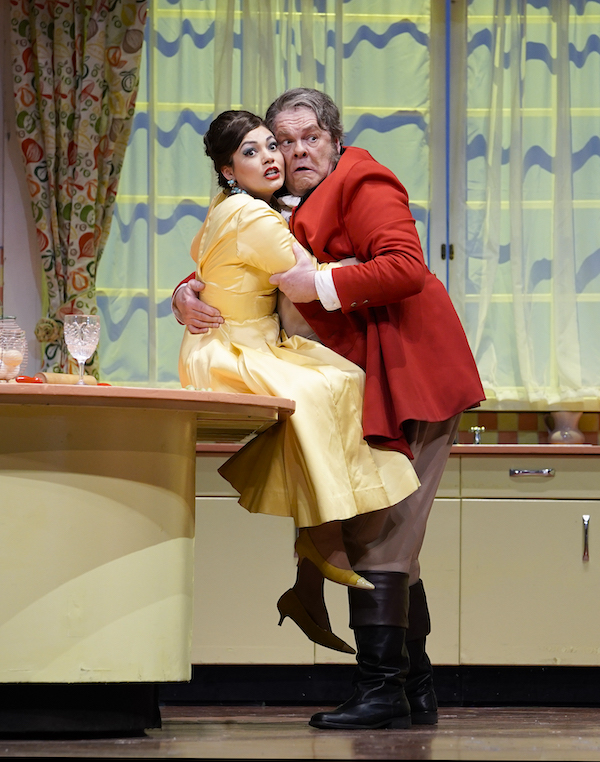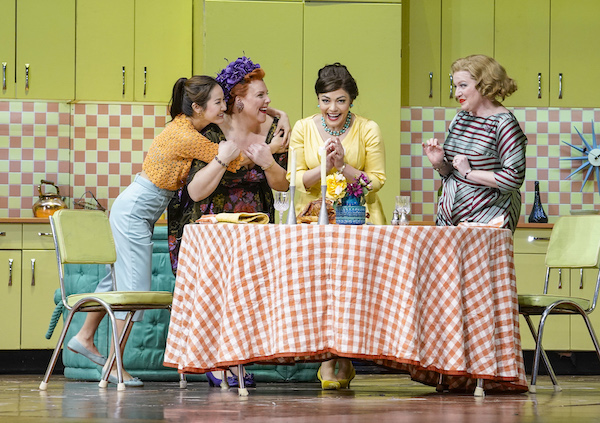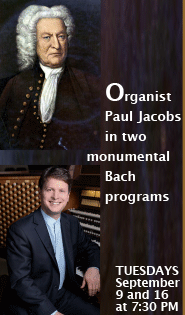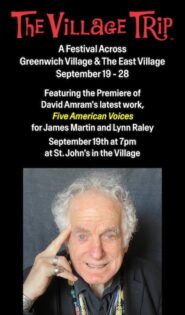A superb cast brings out the comic ingenuity of Verdi’s swan song in Met’s “Falstaff”

The more one sees performances of Verdi’s Falstaff, the more strange it appears.
Verdi’s last opera is not only atypical in his career for being only his second comedy (along with the early Un giorno di regno)out of more than two dozen total operas, it is far different in means than his main body of work. The opera is mostly dialogue and ensembles, there is barely a signature Verdi aria, and even that is incomplete.
That last detail is a secret key to Falstaff, which is that, coming at the dawn of cinema and 30 years before the Marx Brothers, it is operatic screwball comedy, one thing always collapsing or dovetailing into another, a moment’s pause existing to set up the next conflict.
Performing this, even in the intrinsically bizarre world of opera, demands a certain kind of cast and style of direction, and that’s just what the Metropolitan Opera delivered in its revival at Sunday’s matinee opening. What went above and beyond was the quality of the singing, especially baritone Michael Volle as Sir John Falstaff.
The Met has been producing this opera since both were new, and their most recent Sir John in this Robert Carson production was Ambrogio Maestri—a truly larger-than-life figure, a physical manifestation of the character who sang it in a heavily parlando style—old school and classic, in a way, but not as musically effective as hearing the notes Verdi wrote. Having such a fine vocalist as Volle at the center of the action meant the voices, and the music were at the fore. It was not just hi-jinks, but fine music making and a whole satisfying package.
Not that Volle didn’t fill out the part dramatically as well as vocally—with the help of a padded costume he was fully Falstaff. His strong, clear sound and elegant phrasing also meant he could more easily move through the different sides of the character, from blustery to buffoonish, insinuating to melancholy, overconfident but slightly self aware. It didn’t hurt that in the character’s rougher moments, he seemed like a Verdian version of Kramer from Seinfeld, not a bad thing—who could sing.

It helped that Volle was backed by the usual deep cast of excellent singers one finds at the Met—including soprano Allyn Pérez as Alice, mezzo-soprano Jennifer Johnson Cano as Meg, contralto Marie-Nichole Lemieux as Mistress Quickly, and baritone Christopher Maltman as Ford. Pérez, Cano, and Lemieux were not only in fine voice, but seemed carefree as well, enjoying themselves in the characters, relishing what, at last in opera terms, is the equivalent of snappy dialogue. This suited the music, which goes back and further, interjects, and chatters as much as the characters—like recitatives but more musical and through-composed.
The contrasting colors from these singers mirrored those in the score, which has more instrumental details than many of Verdi’s older works. Pérez was tremendously clear and full, Cano sounded unexpectedly lighter than the soprano, an ideal vocal characterization for the lightheartedness of Meg, and Lemieux was perhaps best of all, with a gorgeous sound and a commanding presence—she came off as the ringleader of the Merry Wives of Windsor, very much like the figure in a sitcom who shoves all the other characters into action.
Maltman was also a highlight, not just his character but his vocal performance standing as a worthy rival to Falstaff. The natural edge in his voice means he can move quickly between comic and threatening qualities. As the husband threatened by a possible cuckolding he was full of the self-serious energy of a great straight man, even while wearing a ridiculous Las Vegas cowboy outfit in his masquerade as Fontana, opposite Falstaff in his English riding clothes. As the two tried to out-swagger each other, they embodied superb clownishness, even without the red noses.
That was part of Gina Lapinski’s stage direction, which smoothly mixes together the score with Carsen’s somewhat confused setting, which seems to exist, depending on the scene, sometime in the ’30s or ’50s, and either in a private London club or a Los Angeles kitchen. In the kitchen, there is a spectacular sequence of Ford leading a crowd through live-action slow motion pratfalls as they seek to trap Falstaff.
Everyone is either a clown or is aiding and abetting clownishness, in one way or another, with the exception of the young lovers Nannetta (soprano Hera Hyesang Park) and Fenton (tenor Bogdan Volkov). The two have the purest, most operatic music—including the celebrated Act III scene. Volkov was warm, though a big muffled compared to so many of the big voices on stage, while Park had a shining soubrette sound without losing any of the character’s simple innocence.
While every single individual moment was easily excellent, some of the ensembles were ragged. Daniele Rustioni is in the pit for this revival. His leadership was mostly solid, and the orchestral details were terrific, but the Act I ensembles were a murk of conflicting pulses and articulations, with an uneven pace between singers and orchestra.
This problem seemed solved by Act II, with the “Merry Wives of Windsor” trio tight and sparkling. Then, the opening of the third act felt sluggish at first, up until the point where Falstaff is joined by the other characters and chorus. The lyrical, wispy music came together with energy, and Volle know how to milk the final comedic gestures to maximum effect.
Falstaff runs through April 1. metopera.org

